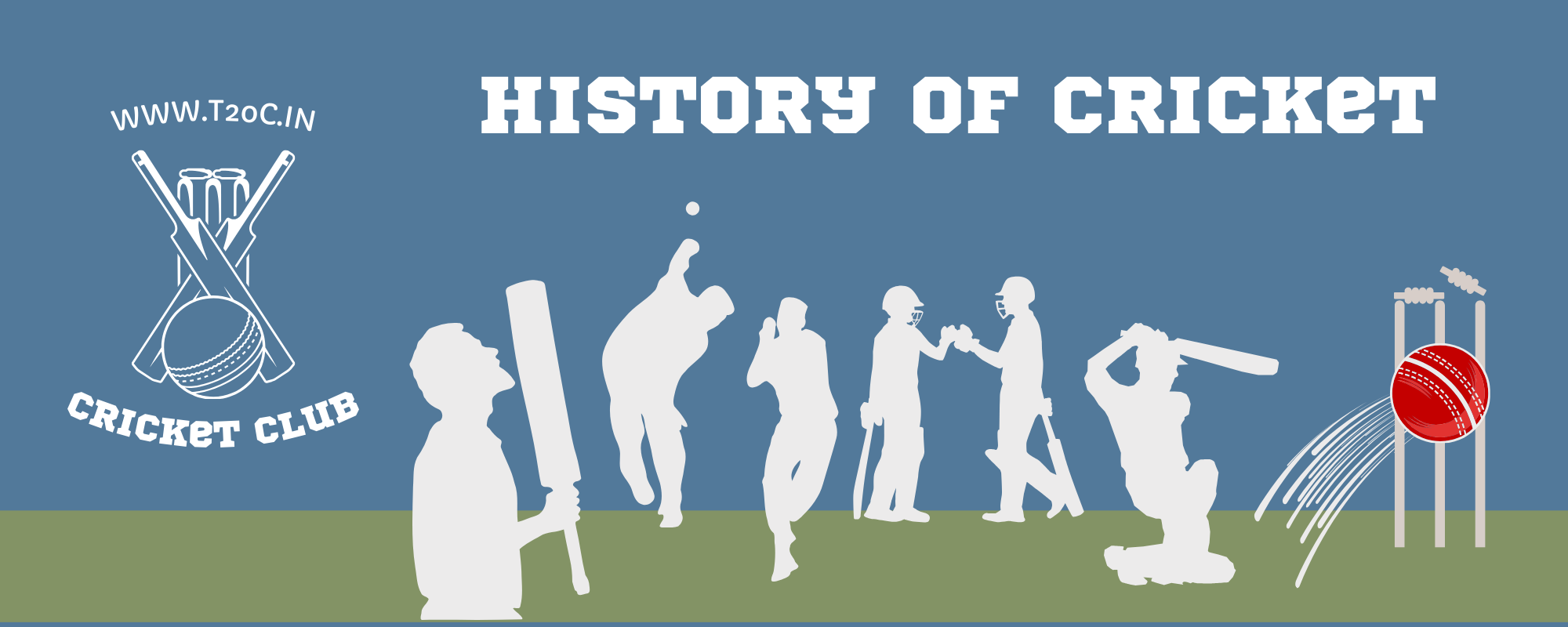Introduction
Cricket, a sport of bat and ball, has evolved from a simple pastime into a global obsession. Its rich history, spanning centuries, is a tapestry woven with countless matches, legendary players, and dramatic moments. Let’s embark on a journey through time to unravel the fascinating history of cricket.
The Origins of Cricket
While the exact origins remain shrouded in mystery, cricket’s roots can be traced back to medieval England. Early forms of the game involved hitting a ball with a stick, with the objective being to hit it as far as possible. Over time, rules and structures evolved, laying the foundation for the modern game.
The Evolution of Cricket
Cricket gained significant popularity during the 18th century. The first recorded county match took place in 1744, marking a significant milestone. The establishment of the Marylebone Cricket Club (MCC) in 1787 brought about standardized rules and regulations, solidifying cricket’s position as a structured sport.
The 19th century witnessed cricket’s expansion beyond England. The game spread to Australia, South Africa, and the West Indies, laying the groundwork for international competition. The first Test match, between England and Australia, was played in 1877, heralding the birth of Test cricket.
The Role of ICC and BCCI
The International Cricket Council (ICC), founded in 1909, serves as the governing body for cricket worldwide. It oversees the sport’s development, organizes major tournaments, and regulates the game’s laws.
The Board of Control for Cricket in India (BCCI), established in 1928, is the national governing body for cricket in India. It has played a pivotal role in India’s cricketing dominance, organizing domestic tournaments and managing the Indian national team.
A Focus on Full Member Cricket Boards
However, we can provide a table focusing on the Full Member countries of the International Cricket Council (ICC), which are the most established and influential cricket nations:
Table: Full Member Cricket Boards and Their Founding Years
| Country | Cricket Board | Year Founded (approx.) |
|---|---|---|
| England | Marylebone Cricket Club (MCC) | 1787 |
| Australia | Australian Cricket Board (now Cricket Australia) | 1892 |
| South Africa | South African Cricket Association (now Cricket South Africa) | 1889 |
| West Indies | West Indies Cricket Board (now Cricket West Indies) | 1895 |
| New Zealand | New Zealand Cricket | 1894 |
| England | International Cricket Council (ICC) | 1909 |
| India | Board of Control for Cricket in India (BCCI) | 1928 |
| Pakistan | Pakistan Cricket Board (PCB) | 1947 |
| Sri Lanka | Sri Lanka Cricket (SLC) | 1975 |
| Zimbabwe | Zimbabwe Cricket (ZC) | 1983 |
| Bangladesh | Bangladesh Cricket Board (BCB) | 1972 |
| Afghanistan | Afghanistan Cricket Board (ACB) | 1995 |
| Ireland | Cricket Ireland | 1882 |
Cricket’s Global Expansion
Cricket’s popularity has grown exponentially over the years, with new countries embracing the game. The ICC has played a crucial role in expanding the sport’s reach.
Table: Growth of Test Playing Nations
| Year | Countries Added |
|---|---|
| 1877 | England, Australia |
| 1889 | South Africa |
| 1892 | West Indies |
| 1932 | New Zealand |
| 1952 | India, Pakistan |
| 1961 | Sri Lanka |
| 1992 | Zimbabwe |
| 2000 | Bangladesh |
| 2000 | Ireland |
| 2018 | Afghanistan |
| 2022 | Australia |
The Rise of One-Day Cricket and T20
While Test cricket remains the pinnacle of the game, the introduction of limited-overs formats revolutionized cricket. One-Day Internationals (ODIs) gained popularity in the 1970s, offering fast-paced action. The advent of Twenty20 (T20) cricket in the early 2000s further transformed the sport, attracting a new generation of fans.
Cricket’s Impact on Culture and Society
Cricket has transcended the boundaries of a sport, becoming an integral part of many cultures. In countries like India, Pakistan, Australia, and England, cricket enjoys a cult-like following. The game has produced numerous iconic figures who have become household names.
Cricket has also played a significant role in fostering unity and national pride. The sport has the power to unite people from different backgrounds, transcending social and economic divides.
Challenges and Future of Cricket
Despite its immense popularity, cricket faces challenges such as maintaining fan interest in the face of competition from other sports, ensuring fair play, and addressing issues of corruption.
The future of cricket looks promising with initiatives aimed at attracting new audiences and expanding the game’s reach. The ICC continues to invest in developing cricket in associate nations, while technological advancements are enhancing the fan experience.
Conclusion
Cricket’s journey from humble beginnings to a global phenomenon is a testament to its enduring appeal. The sport has evolved over centuries, adapting to changing times while preserving its core values. With its rich history, passionate fan base, and exciting future prospects, cricket is set to continue captivating audiences worldwide for generations to come.
FAQ
Q1: What is the oldest cricket club in the world?
A1: The Hambleden Club, founded in 1750, is considered the oldest cricket club in the world.
Q2: Who is the greatest cricketer of all time?
A2: The debate over the greatest cricketer of all time is a perennial one, with fans often divided between legends like Sachin Tendulkar, Don Bradman, and Garry Sobers.
Q3: What is the longest cricket match ever played?
A3: The longest cricket match ever played was the 1999 match between South Africa and England, which lasted for four days and five nights due to rain interruptions.
Q4: What is the highest score in Test cricket?
A4: The highest individual score in Test cricket is 400 not out, achieved by Brian Lara for the West Indies against England in 2004.
Q5: What is the biggest cricket stadium in the world?
A5: The Narendra Modi Stadium in Ahmedabad, India, holds the record for the largest cricket stadium in the world with a capacity of over 132,000 spectators.
Note: This blog provides a comprehensive overview of cricket’s history. To delve deeper into specific aspects, you can explore additional resources and conduct further research.

